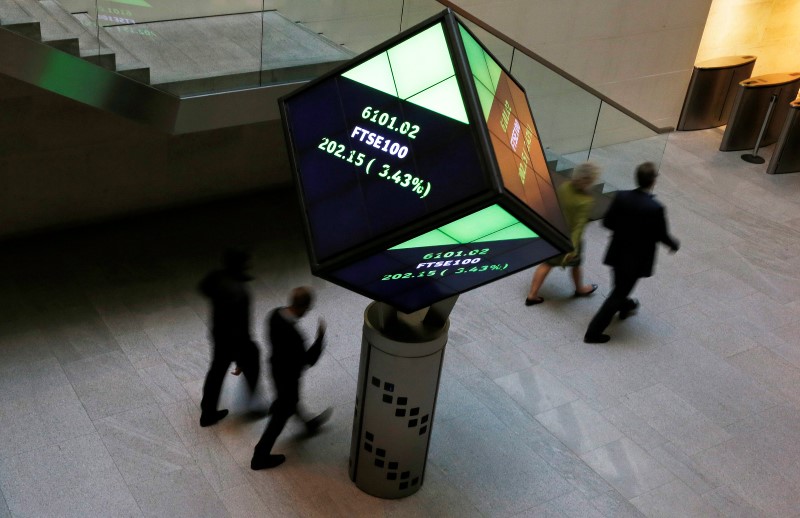By Jemima Kelly
LONDON (Reuters) - World stocks climbed for the first time in four days on Tuesday and a weaker dollar helped oil prices gain as investors fine-tuned their expectations for monetary policy meetings in the United States and Japan.
European shares also benefited from a less-bad-than-expected 80 percent first quarter profit fall and an unchanged dividend from BP (L:BP), as well as encouraging results from pulp and paper maker UPM (HE:UPM1V).
Wall Street looked set to open slightly higher, according to index futures (ESc1) (1YMc1)
With the quarterly earnings season in full swing, investors were awaiting an update from the world's biggest company, Apple (O:AAPL). The pan-European FTSEurofirst 300 (FTEU3) stock index and Britain's FTSE 100 both rose 0.3 percent (FTSE). (EU)
Those gains helped the MSCI world equity index (MIWD00000PUS), which tracks shares in 45 countries, edge up after three successive days of losses, taking it back toward an almost-five-month high touched last week.
"European equity markets are trading moderately higher on positive corporate earnings surprises from several companies," said City of London Markets trader Markus Huber.
Ahead of the two-day Federal Reserve meeting starting on Tuesday, Huber said "many traders are at least temporarily moving their overall exposure to more neutral from previous negative, consequently closing some of their short positions."
Markets see no chance of a U.S. interest rate increase and are pricing in about a one-in-five chance of a move at the next meeting on June 14-15. A surprise drop in new U.S. home sales data for March on Monday added to evidence of anemic U.S. economic growth.
Nevertheless, Fed officials have repeatedly said a hike in June is on the cards.
"Even dovish policy makers such as (Boston Fed President Eric) Rosengren are saying market expectations are too low," said Nomura Securities fixed income strategist Tomoaki Shishido, in Tokyo.
"So the Fed may try to urge markets to price in higher rates. On balance, we are more likely to have a hawkish surprise than a dovish surprise," he added.
The 10-year U.S. Treasuries yield (US10YT=RR) stood at 1.909 percent, easing from a four-week high of 1.914 percent on Monday.
DOLLAR DOWN
Asian stocks reversed earlier falls. MSCI's broadest index of Asia-Pacific shares outside Japan (MIAPJ0000PUS) edged up 0.1 percent and Japan's Nikkei (N225) closed down 0.5 percent.
The yen, which tends to have an inverse correlation with Japanese stocks, climbed for a second day, with the dollar falling a third of a percent to 110.80 yen <JPY=>, as prospects of more monetary stimulus this week from the Bank of Japan, which begins a two-day meeting on Wednesday, remained unclear.
Late last week, the yen tumbled to three-week lows on speculation that the BOJ would introduce more easing measures, but analysts said those expecting aggressive monetary loosening may be disappointed.
Sterling strengthened to a 10-week high against the dollar
"It looks as if there has been a change of sentiment," said Esther Reichelt, an FX strategist with Commerzbank (DE:CBKG) in Frankfurt. "The options market in general is pricing in less chance of a big move around the Brexit vote and the market seems less worried it will happen."
Against the euro, too, the dollar edged down <EUR=>, leaving it 0.3 percent lower on the day against a basket of major currencies (DXY).
The weaker dollar, and expectations the global oil glut would ease, lifted crude prices. Brent futures (LCOc1) traded up 1.4 percent at $45.10, while U.S. crude futures (CLc1) were up 57 cents, at $43.21 a barrel.[O/R]
Both remained off five-month highs hit last week.

An unexpected bond sale from the euro zone rescue fund kept German Bund yields near five-week highs on Tuesday, as worries grew that a recent rise in yields resembled the run-up to a brutal sell-off that occurred in 2015. [GVD/EUR]